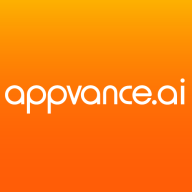

Appvance AIQ Platform and OpenText Functional Testing for Developers compete in automating testing processes in software development. OpenText has the upper hand due to its comprehensive testing capabilities.
Features: Appvance AIQ Platform includes AI-driven automation for extensive test coverage and faster execution. It also emphasizes ease of use and cost-efficiency, suitable for straightforward projects. OpenText Functional Testing for Developers provides advanced functionality with integration across multiple development environments. It's preferred for complex testing scenarios and offers a robust set of features that cater to comprehensive testing requirements.
Ease of Deployment and Customer Service: Appvance AIQ Platform offers straightforward deployment and efficient customer service for quick implementation. It's designed to reduce complexity during the setup. OpenText offers detailed deployment guidance and extensive support, beneficial for organizations with complex setups that require thorough assistance.
Pricing and ROI: Appvance AIQ Platform offers competitive pricing, ideal for cost-conscious buyers seeking a significant ROI through reduced operational costs. OpenText Functional Testing for Developers involves a more substantial upfront investment but offers long-term ROI through its comprehensive testing capabilities, valued for those prioritizing feature-rich offerings.

Appvance.ai is the leader in AI-driven testing, which is revolutionizing how software testing is performed. The company’s premier product is Appvance IQ™, the world’s first AI-driven, unified test automation system. AIQ empowers enterprises to improve the quality, performance and security of their apps, while transforming the efficiency and output of their testing teams.
Appvance IQ was launched in late 2017, helping Appvance.ai to become among the fastest growing test automation companies in the world, and the leader in the new category of AI driven testing.
OpenText Functional Testing for Developers offers robust automation capabilities with support for complex algorithms, multi-platform testing, and developer-friendly integration using C# and Java, facilitating seamless testing transitions and efficient automation workflows.
This testing tool is highly valued for its integration with ALM and Jenkins, along with its developer-focused environment adaptable to Eclipse and Visual Studio. With AI-based object recognition, an object repository, and test framework integration, it bolsters DevOps practices while reducing IT workloads. Supporting UFT to LeanFT transition, it caters to SAP, Java, .NET environments, and more. Enhanced with stable automation, extensive protocol support, and both on-premises and cloud deployments, it targets performance, regression, and functional testing, while recording and screengrabs enhance automation capabilities. Future improvements could include expanded browser compatibility, enhanced JavaScript and mobile support, and better object recognition.
What are the key features of OpenText Functional Testing for Developers?Organizations implement OpenText Functional Testing for complex test automation on desktop, web, and banking applications, supporting performance, regression, and functionality testing across environments like SAP, Java, and .NET. UFT aids in GUI, infrastructure, and ERP application automation, with deployment options including on-premises and cloud implementations. Enhanced screengrabs and recording features aid in practical test case development, while addressing emerging technology needs is a focus.
We monitor all Functional Testing Tools reviews to prevent fraudulent reviews and keep review quality high. We do not post reviews by company employees or direct competitors. We validate each review for authenticity via cross-reference with LinkedIn, and personal follow-up with the reviewer when necessary.